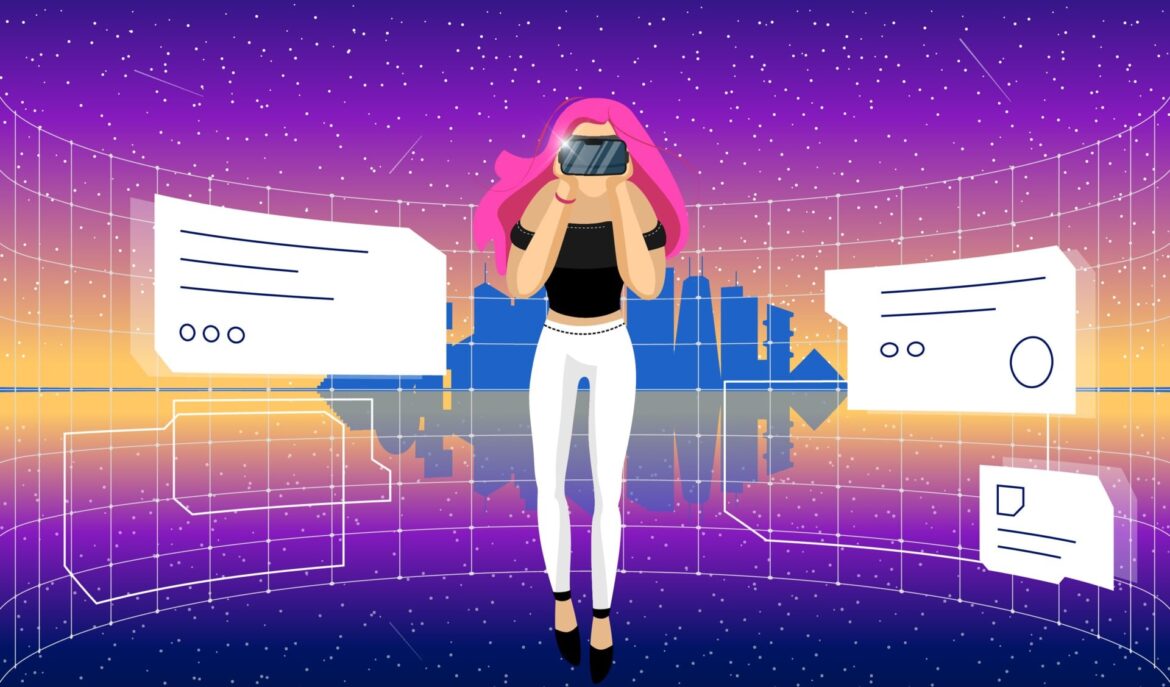The Metaverse is a term that has gained a lot of attention in recent years, as it represents the convergence of virtual and physical reality. It is a collective virtual shared space that includes the sum of all virtual worlds, augmented reality, and the internet. While the Metaverse is still in its early stages of development, it has the potential to fundamentally change the way we experience and interact with the world. In this post, we’ll explore 20 things that everyone should know about the Metaverse, including its origins, potential, current state, and future. We’ll also discuss the challenges, opportunities, and implications of this exciting new technology.
Contents
- 1. What is the Metaverse?
- 2 The Origins of the Metaverse
- 3. The Potential of the Metaverse
- 4. The Current State of the Metaverse
- 5. The Future of the Metaverse
- 6. The Challenges of the Metaverse
- 7. The Importance of Inclusivity in the Metaverse
- 8. The Role of Blockchain in the Metaverse
- 9. The Economic Potential of the Metaverse
- 10. The Social Impact of the Metaverse
- 11. The Educational Potential of the Metaverse
- 12. The Role of Virtual Reality in the Metaverse
- 13. The Role of Augmented Reality in the Metaverse
- 14. The Potential for Virtual Real Estate in the Metaverse
- 15. The Ethics of the Metaverse
- 16. The Legal Implications of the Metaverse
- 17. The Security of the Metaverse
- 18. The Role of Governments in the Metaverse
- 19. The Role of Private Companies in the Metaverse
- 20. The Future of the Metaverse is Still Unclear
- Further Thoughts
1. What is the Metaverse?
The Metaverse is a collective virtual shared space, created by the convergence of virtually enhanced physical reality and physically persistent virtual space, including the sum of all virtual worlds, augmented reality, and the internet.
“Metaverse isn’t a thing a company builds. It’s the next chapter of the internet overall.”
Mark Zuckerberg, Meta.
2 The Origins of the Metaverse
The concept of a shared virtual space can be traced back to science fiction literature in the mid-20th century. The term “Metaverse” was coined in Neal Stephenson’s 1992 novel “Snow Crash,” in which it described a virtual reality space where users could interact with each other and digital objects.
3. The Potential of the Metaverse
The Metaverse has the potential to revolutionize the way we work, play, and interact with each other. It could serve as a platform for virtual events, online education, and remote work, as well as a new medium for entertainment and socialization.
4. The Current State of the Metaverse
While the Metaverse is still in its early stages of development, there are already several examples of virtual worlds and augmented reality applications that offer a glimpse of its potential. Some popular examples include the virtual world Second Life, the multiplayer online game World of Warcraft, and the augmented reality game Pokemon Go.
5. The Future of the Metaverse
It is difficult to predict exactly how the Metaverse will evolve in the future, but it is clear that it has the potential to fundamentally change the way we experience and interact with the world. Some experts believe that the Metaverse will eventually become seamlessly integrated with our physical lives, blurring the lines between the virtual and the real.
6. The Challenges of the Metaverse
Developing and maintaining the Metaverse will present a number of challenges, including technical challenges related to scaling and interoperability, as well as ethical and legal issues related to privacy, ownership, and governance.
7. The Importance of Inclusivity in the Metaverse
As the Metaverse continues to develop, it is important to ensure that it is accessible and inclusive for all users. This includes designing virtual spaces that are welcoming and accessible to people with disabilities, as well as addressing issues of diversity and representation.
8. The Role of Blockchain in the Metaverse
Blockchain technology has the potential to play a significant role in the development and governance of the Metaverse. It could be used to track ownership and transactions in virtual worlds, as well as to facilitate secure interactions between users.
9. The Economic Potential of the Metaverse
The Metaverse has the potential to generate significant economic value, through the sale of virtual goods and services, as well as through the creation of new markets and business models. Some experts predict that the Metaverse could eventually become a major driver of the global economy.
“The metaverse is here, and it’s not only transforming how we see the world but how we participate in it – from the factory floor to the meeting room.”
Satya Nadella, Microsoft
10. The Social Impact of the Metaverse
The Metaverse could have significant social and cultural impacts, as it offers new ways for people to connect and interact with each other. It could also have the potential to bridge cultural divides and bring people together from different parts of the world.
11. The Educational Potential of the Metaverse
The Metaverse could provide new opportunities for education and learning, through the creation of virtual classrooms and other educational spaces. It could also enable the development of immersive learning experiences and simulations.
12. The Role of Virtual Reality in the Metaverse
Virtual reality (VR) technology will likely play a significant role in the development of the Metaverse, as it allows users to fully immerse themselves in virtual environments. VR has already been used in a variety of applications, including gaming, education, and training.
“It is a massively scaled and interoperable network of real-time, rendered, 3D virtual worlds that can be experienced synchronously and persistently by an effectively unlimited number of users, each with an individual sense of presence.”
Matthew Ball, Author, formerly Amazon
13. The Role of Augmented Reality in the Metaverse
Augmented reality (AR) technology, which enhances the real world with digital information and experiences, is also expected to be a key component of the Metaverse. AR has already been used in a variety of applications, including navigation, entertainment, and education.
14. The Potential for Virtual Real Estate in the Metaverse
As the Metaverse evolves, it is likely that virtual real estate will become a valuable asset. This could include virtual land, buildings, and other structures that can be owned and traded in virtual worlds.
15. The Ethics of the Metaverse
As the Metaverse develops, it will be important to consider the ethical implications of virtual experiences and interactions. This includes issues related to privacy, consent, and the potential for harm or exploitation.
“This metaverse is going to be far more pervasive and powerful than anything else. If one central company gains control of this, they will become more powerful than any government and be a god on Earth.”
Tim Sweeney, Epic Games.
16. The Legal Implications of the Metaverse
The Metaverse will also raise a number of legal questions, including issues related to jurisdiction, intellectual property, and liability. It will be important for governments and other stakeholders to address these issues as the Metaverse continues to develop.
17. The Security of the Metaverse
Ensuring the security of the Metaverse will be critical, as virtual spaces and assets could be vulnerable to hackers and other cyber threats. It will be important to implement strong security measures to protect users and prevent unauthorized access.
18. The Role of Governments in the Metaverse
Governments will likely play a role in regulating and governing the Metaverse, particularly as it becomes more integrated with our physical lives. This could include issues related to taxation, privacy, and other legal and ethical concerns.
19. The Role of Private Companies in the Metaverse
Private companies will also play a significant role in the development and operation of the Metaverse. This could include the creation of virtual worlds and applications, as well as the development of technology and infrastructure needed to support the Metaverse.
20. The Future of the Metaverse is Still Unclear
While the potential of the Metaverse is exciting, it is still difficult to predict exactly how it will evolve and what it will ultimately look like. It will be important for stakeholders to stay informed and actively participate in shaping the direction of the Metaverse as it continues to develop.
Further Thoughts
The Metaverse is a virtual shared space that has the potential to revolutionize the way we work, play, and interact with each other. It is still in its early stages of development, but it is already clear that it will have significant technical, economic, social, and cultural impacts. As the Metaverse continues to evolve, it will be important for stakeholders to consider the ethical, legal, and security implications, and to work towards creating an inclusive and accessible virtual world for all. We hope you enjoyed our post on the 20 things everyone should know about the Metaverse and would appreciate a share on your favorite social media channels using the buttons below. Thanks in advance.


